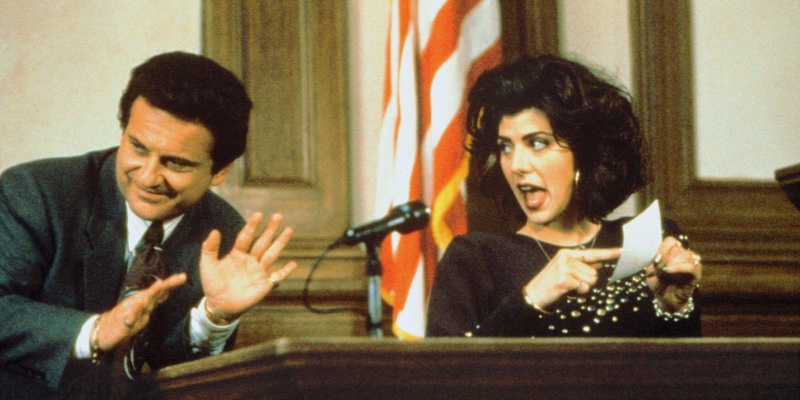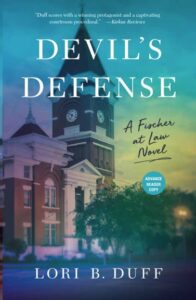Inevitably, when I am making small talk at a cocktail party and someone finds out that I am a lawyer, I get asked one of two questions (or both):
- What’s the most interesting case you ever had?
- Do you watch Law & Order?
I despise both of these questions. The first question is impossible to answer both because it’s the equivalent of asking a non-lawyer, “What’s the most exciting presentation you ever made at work?” and because lawyers have to keep a lot of stuff under wraps because of attorney-client privilege.
The second question always makes me sound like a grump. Do I watch Law & Order? No. Why not? For one, the very first Law & Order iteration started in 1990, and I was in college and then law school and didn’t have a lot of time to watch TV. I’m not even sure I had one the first year of law school, and this was long before streaming was a thing. My first job out of law school was as a prosecutor in Atlanta, and watching Law & Order was like watching someone do my job on television, but making mistakes every two minutes. It was torture.
I feel that way about most lawyer stuff—books, movies, TV. It’s not that interesting to me, because it’s just a day on the job, and I could whip the tail of just about any media lawyer simply on the technicalities they violate. Seeing so much inauthenticity is a large part of what drove me to write my novel, Devil’s Defense, the first in the Fischer-at-Law series. I wanted to see it done correctly. I got tired of seeing lawyers yell “Objection!” without having a valid reason to object; lawyers who only had one case at a time; and lawyers who violated all kinds of rules without any consequence. Etc. etc. etc.
That said, there are some lawyer-y media that I enjoy. My Cousin Vinny, for example, is one of my all-time favorite movies. Partly because it was fairly accurate in how it depicted the law. I use a clip of it when I teach Open Records. In 2023 the Georgia Bar Association hosted a Twitter voting bracket and My Cousin Vinny won in a tie with To Kill a Mockingbird. And honestly? I think Georgia lawyers only voted for To Kill a Mockingbird because they felt like they were supposed to.
I’m also fond of The War of the Roses. This is an old, late-80s movie with Michael Douglas, Kathleen Turner, and Danny DeVito that I didn’t truly appreciate until I started in private practice and handling divorces. The message of the movie rings so true to me. So much so, that I once made a client watch it before making a decision about property division.
A stray thought: Since I started my career as a prosecutor — and tried shootings, child molestations, and other bits of nastiness — I thought I’d seen the worst of what the world could offer. Boy way I wrong. Most crimes are borne of passion or ignorance or being under the influence of something. But people going through a divorce? Man. Those folks will sit up at night plotting ways to destroy each other. I seriously once spent an hour at a mediation arguing over a seven-dollar house plant.
Legally Blonde is fun and entertaining, though if you’re looking to it to see what Harvard Law School is really like, look almost anywhere else. And there is no planet upon which a law student would be allowed to question a witness in a high-stakes murder trial. Even a baby lawyer wouldn’t likely get to do this in a big city. The best Elle could have done would be to pass a note to the ‘real’ lawyer and hope he paid her any attention.
Lots of movies and books are not necessarily legal-themed, but the law is a major plot point. When this occurs, as a lawyer, I can’t help but over-think them. Take The Little Mermaid. Please, take The Little Mermaid. I despise The Little Mermaid for about a thousand reasons, not the least of which is that Ariel thinks the best way to get a man is to lose her ability to communicate with him. So long as she’s pretty, right? Anyway, Ursula’s contract with the Ariel seems perfectly valid to me. Calling her the villain seems unfair. She made a bargain, Ariel agreed to it, understanding the terms, and suddenly she’s the bad guy? I don’t think so. Of course, I have no idea what the age of majority is in mer-person land, nor am I sure how old Ariel is, but presumably she’s of marriageable age, which would mean she’s of contracting age.
Lawyers habitually split the ends of an already split hair.
And that’s what it comes down to, I guess. Lawyers, if they want to be any good, have to be detail oriented. Unfortunately, being detail oriented tends to bog down narrative and chill dramatic effect. In real life? Tom Cruise would never have shouted at Jack Nicholson in a military court in A Few Good Men, nor would Jack have shouted back. Not without major consequence for both, anyway. But if they hadn’t, one of the best, most quotable scenes in the movie couldn’t have happened. The fact that it is unrealistic means, well, I guess it means when it comes to fiction, most audiences can’t handle the truth.
***


















